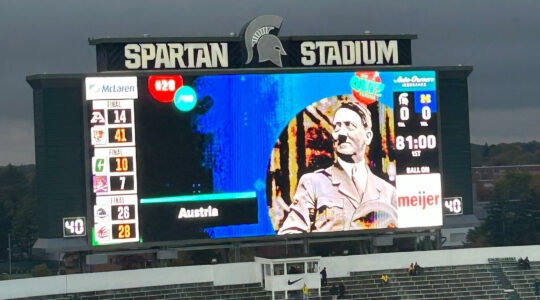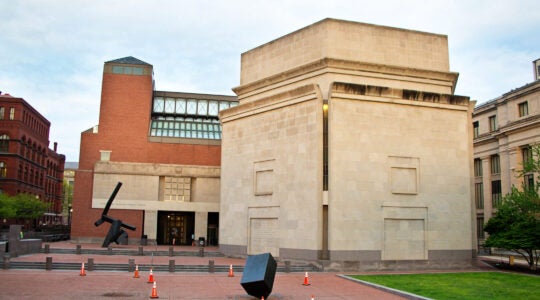JERUSALEM, April 7 (JTA) — Criticism of an article about Ethiopian immigrants that was selected to receive an Israel Prize for journalism has led to the withdrawal of the honor. Veteran Ma’ariv columnist Shmuel Schnitzer was announced earlier this month as one of this year’s three recipients of the Israel Prize for journalism. The other winners are Israel Television news announcer Haim Yavin and photojournalist David Rubinger. The awards are presented annually on Independence Day, which falls this year on May 12. The naming of Schnitzer drew a sharp protest from the leaders of the Ethiopian community, who claimed that he is a racist who incited hatred. Leaders of the community, including Labor Knesset member Adisu Massala, petitioned the High Court of Justice in an effort to block Schnitzer from receiving the prize. Massala cited an August 1994 article by Schnitzer in which he referred to Ethiopians who immigrated to Israel as “thousands of apostates carrying dangerous diseases.” Schnitzer’s column was written in response to an article in the Ha’aretz newspaper that reported on the high incidence of tuberculosis among Ethiopian immigrants. It also followed a request by the Ethiopian community to block the broadcast of a television news story on the high incidence of AIDS in the community. Schnitzer wrote that the public’s right to know superseded the Ethiopians’ wish to preserve the reputation of the community. Israel’s Association of Journalists later said that the article was unfair toward the Ethiopian community. This month, the Israel Prize committee said it was not aware of the particular article when it chose Schnitzer as a winner. President Ezer Weizman met with Schnitzer this week and urged him to apologize to the Ethiopian community. Schnitzer refused and was quoted as saying that he would rather give up the prize. Weizman subsequently called Massala and told him that Schnitzer had decided to forego receiving the award. But Schnitzer later told Israel Radio that he did not give up the award, adding that it had been taken from him. Massala, meanwhile, said he did not intend to drop the High Court petition.
JTA has documented Jewish history in real-time for over a century. Keep our journalism strong by joining us in supporting independent, award-winning reporting.





